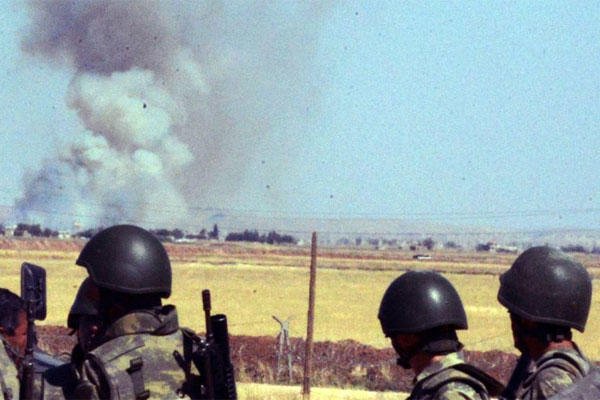U.S. Central Command maintained Friday that ISIS counter-attacks in northeastern Syria which inflicted heavy casualties were diversionary and meant to offset recent losses.
"We assess these were limited, localized attacks" in Kobani and Hasakah and not part of a broader offensive intended to seize and hold ground, said Air Force Col. Pat Ryder, a CentCom spokesman.
Ryder said that Kurdish forces backed by Syrian opposition fighters continued to push south from recently recaptured Turkish border town of Tal Abyad toward the town of Raqaa, considered the ISIS capital.
The attacks on Kobani and Hasakah were "small-scale and diversionary," consisting mostly of VBIEDs, or vehicle-borne improvised explosive devices, Ryder said. With the support of U.S. airstrikes, the attacks were beaten off "at considerable cost to the enemy," Ryder said.
However, the Syrian Observatory of Human Rights monitoring group and Western news outlets reported that sporadic fighting continued in both towns and dozens had been killed.
Related Video
ISIS Propaganda Machine
CentCom also put out a statement saying that U.S. and coalition warplanes conducted 10 airstrikes around Kobani on Friday, hitting two large and six small ISIS tactical units.
Through social media, ISIS has repeatedly vowed to renew attacks to take Kobani, a Turkish border crossing which was held under siege for weeks late last year by ISIS fighters before they were driven off by Kurdish fighters backed by coalition airpower.
The Kurdish forces now hold an area of 4,800 square kilometers in northeastern Syria, about the size of Rhode Island, Ryder said.
In Iraq, Ryder said the Iraqi Security Forces (ISF) continued to make progress in pushing ISIS back from the oil refinery city of Baiji in north. He said that ISIS "activity in this area has been significantly reduced."
To the south in Anbar province, the situation was essentially stalemated, with ISIS holding the provincial capital of Ramadi and the city of Fallujah to the east, and the ISF holding the military base at Taqaddum in between Fallujah and Ramadi. Ryder said the ISF was in "preparation for an eventual counter-attack" on Ramadi but he could not give a timeline.
Ryder said the 450 U.S. troops being sent to Taqaddum in an advise and assist role were "not communicating with or in any way coordinating with" a small number of Iran-backed Shia militiamen who share the base at Taqaddum. The Iran-backed fighters were being kept "well away from coalition forces," Ryder said.
-- Richard Sisk can be reached at richard.sisk@military.com



























